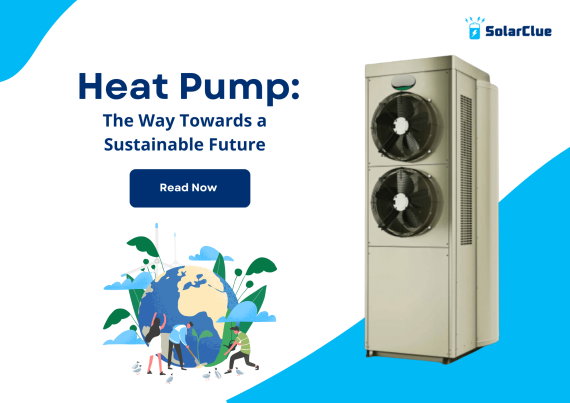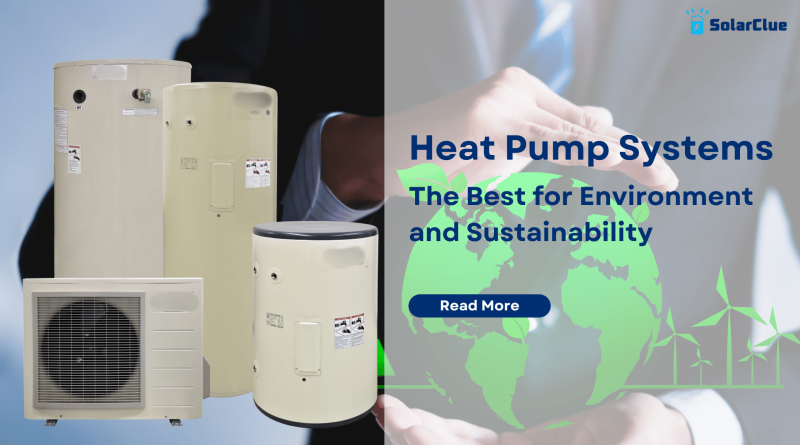Heat Pump Systems – The Best for Environment and Sustainability
Environment and sustainability is the biggest concern today in India. Our country and the planet is facing severe environmental issues, and achieving sustainability is the way to reduce concerns. For that, we must adopt energy-efficient appliances. One such appliance is a heat pump for meeting your daily hot water needs.
In this blog, we will discuss what is environmental sustainability and how a heat pump uses renewable energy and help achieve sustainable goals.
Table of Contents
Sustainability Definition
Sustainability refers to the ability to meet our present needs without compromising the ability of future generations to meet their own needs. It encompasses various forms of energy, such as solar, wind, geothermal, and hydroelectric power, which are renewable and have a minimal impact on the environment.
Why is it important to achieve environmental sustainability in India?
We must all care about the environment and sustainability in India for the following reasons:
- Mitigate the effects of climate change
- Preserve natural resources for future generations
- Improve air and water quality
- Promote economic growth through green initiatives
- Enhance overall quality of life
If we fail to prioritize sustainability, we risk depleting our planet’s resources, leading to dire consequences for future generations. Environment and sustainability is crucial for India’s development, ensuring a balance between economic progress and ecological preservation.
Now that you understand why achieving sustainability is important, the question is how to achieve it. There are many ways to do it. As individuals, you can do it by adopting energy-efficient appliances. By consuming less electricity, these appliances can help reduce carbon footprint and greenhouse gas emissions. One such appliance is a heat pump, for meeting your daily hot water needs. It can efficiently heat water by consuming 75% less electricity than a geyser.
Do you wonder how? Let’s learn more about a heat pump and how it works so efficiently with less electricity.

What is a heat pump?
A heat pump is a water heating device, to meet your daily hot water needs. It is energy-efficient, as it uses less electricity than other traditional water heaters. The difference lies in the working principle. Any traditional water heater, like a geyser, uses direct electricity to heat water. Whereas, a heat pump uses electricity to only transfer heat from one place to another. This heat is used to produce hot water, rather than electricity.
How does a heat pump system work?
A heat pump works on the principle of transferring heat from one place to another.
his system consists of two main components: an indoor unit and an outdoor unit.
The outdoor unit has two parts – an exhaust fan and a compressor. The indoor unit is the storage tank, where water is stored.
The exhaust fan absorbs heat from the surrounding air, while the compressor compresses the refrigerant gas, increasing its temperature. This heated refrigerant gas then passes through a spiral condenser inside the indoor unit, transferring its heat to the water stored in the tank. This process continues until the desired water temperature is reached.
Unlike traditional geysers that use a significant amount of electricity to generate heat, heat pumps consume less energy by simply moving heat from one place to another. This makes them more energy-efficient and cost-effective in the long run. It contributes significantly to environment and sustainability.
How is heat pump the way to achieve sustainable goals?
A Heat pump uses electricity only for the purpose of transferring heat, so it consumes 75% less electricity than a geyser. This reduces the electricity generation from non-renewable sources like fossil fuels. Water is heated using heat absorbed from the outside, which is an environmental sustainability energy. So it is using natural resource (heat from ambient air) to heat water. This makes heat pumps a sustainable choice for your home, to meet your household’s daily hot water needs. Heat pumps are considered 90% renewable. That’s how it contributes towards environment and sustainability.
What are the benefits of a heat pump?
There are various benefits of Heat Pump Systems, which are as follows:
1. Cost-Effective
Heat pumps have high upfront cost. However, they make up for it through lower operating costs. Heat pumps transfer heat rather than generating it directly. This uses far less electricity – up to 75% less. Over its 10-15 year lifespan, a heat pump can save you hundreds or even thousands in energy costs. So it is actually a cheaper alternative to other traditional water heaters like geysers.
2. Long Lifespan
With proper maintenance, heat pumps last 15 years or more – significantly longer than standard electric geysers (8-10 years). So there is no need for replacement for a long time. This extended life cycle also contributes to it being a cost-effective option.
3. Reduced Water Wastage
Traditional water heaters constantly heat and reheat the same water, leading to significant energy losses. Heat pumps heat water more efficiently, so you don’t have to run the tap as long waiting for hot water. This conserves water, especially in households with long pipe runs.
4. Positive Environmental Impact
By consuming significantly less electricity than conventional water heaters, heat pump water heaters have a lower carbon footprint and contribute to reducing greenhouse gas emissions. This positive environmental impact is achieved by relying on renewable energy sources (ambient air) and minimizing the use of fossil fuels for power generation. Additionally, the longer lifespan of these systems further reduces the environmental impact associated with manufacturing and disposing of water heaters.
5. Efficient in Cold Climates
One common misconception about heat pump water heaters is that they may not perform well in colder climates. However, modern heat pump water heaters are designed to be efficient even in low temperatures. They can effectively extract heat from the surrounding air, even when the temperature drops below freezing. This makes heat pump water heaters a viable and energy-efficient option for hot water needs in various climates, including colder regions.
6. Manual Temperature Setting
Most heat pumps allow you to change temperature as per your requirements. This ensures you have hot water when needed without wasting energy by overheating the water beyond your requirements.
7. Availability in Different Sizes
Heat Pumps normally have an indoor and an outdoor unit. But many homes in India, specially in big cities, may not have that space available. For that, a single-unit heat hump is designed. It is also called Integrated Heat Pump.
Conclusion
Heat Pump’s advanced technology allows it to heat water efficiently while consuming significantly less electricity. This not only helps to achieve sustainability, but also helps to reduce overall cost in the long run. It is now time for India to invest in heat pumps for a sustainable future for ourselves and the generations to come.
Visit SolarClue® to see the best heat pump water heaters. SolarClue® is an online marketplace where solar energy products are sold at discounts up to 50%.




